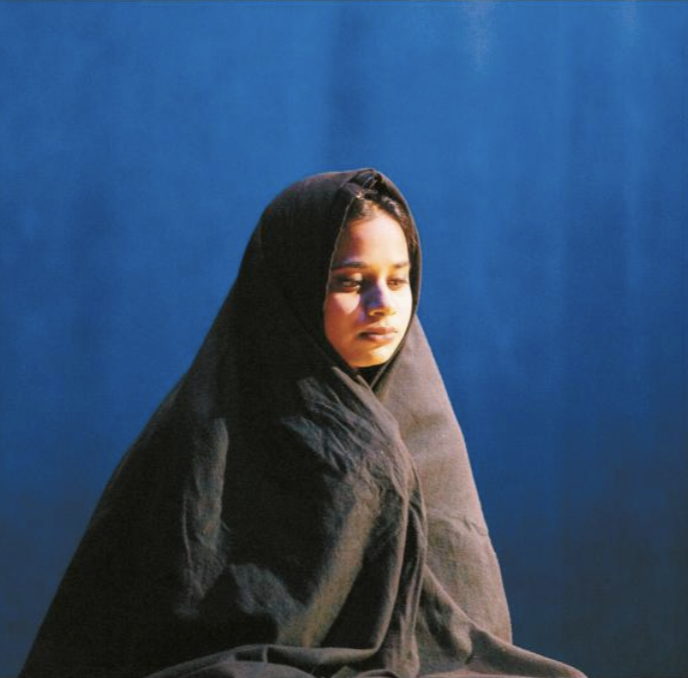Ben Theriault, Staff Writer
Two weeks ago, on Feb. 14, The Poet and the Assassin, a five-act play written by USM’s own, Reza Jalali was performed at Talbot Hall on the Portland campus. The play is a part of the Gloria S. Duclos Convocation who’s theme is race and participatory democracy.
The Poet and the Assassin was performed by an all female cast of students from Bates University. Each act of the play is a monologue delivered by one of the characters, all who represent a different core principle of Iran. The characters are: the Daughter of Iran, the Storyteller, the Poet, the Veil, and the Daughter of the Revolution.
During the opening of the play the five women walked out on stage dressed in chadors, a traditional Iranian gown worn by women that is a large piece of cloth wrapped around the wearers head, leaving only their face exposed. The show begins with the women walking around in a circle, dispersing and then all simultaneously sitting down. This routine is practiced before the start of every act.
Once the women all sit down, one stands and removes her chador. She identifies herself as the Daughter of Iran. In this act, The Daughter of Iran tells the story of the birth of Persia, its diverse heritage and the Islamic Revolution of 1979. The “curse” of being an Iranian woman is analyzed during this segment. Issues such as infanticide, acid attacks, corporal punishment and human trafficking are confronted. While delving into the troubles women face, the Daughter of Iran describes the essential role women play in protests and the fight for equal opportunity. Once her monologue is delivered, the other women rise and the Daughter of Iran returns to the sea of veils.
Next, the storyteller stands. Her monologue is a retelling of 1,001 Arabian Nights that incorporate Iranian culture. This well-known story is about a malicious Middle Eastern King who seeks a new bride every night, only to kill her by the next morning. One of the victims evades this fate by telling the king a new story every night for 1,001 nights. Jalali is able to cleverly use the well known story as a way to orchestrate a point about women in Iran. By blending Iranian culture with these stories, the spectator is able to see that the way women in Iran are treated is not so different from the bondage experienced at the hands of the fictitious king.
The third act centered on the mythology and poets of Iran. Jalali uses this as an excellent opportunity to acquaint the viewer with a variety of important Iranian figures. Of those referenced, is the alleged first female Persian poet, Rabia Rabia Balkh; the first female ambassador since the 1979 Revolution, Marzieh Afkham and female poet and filmmaker, Forugh Farrokhzad. Through embracing these powerful women, Jalali is able to display the significant contributions to Iranian culture made by women and the intrinsic spirit that connects them with contemporary women.
After the poet sits down the embodiment of the veil rises. During this act, prejudice sourced from the Western world is explored; she explains that equating the hijab with victimhood is damaging to the Islamic community. The veil and the various implications that accompany it are discussed. This segment works to dispel the belief that all women that wear a hijab are oppressed; this assumption is dismissive of the connection that many women feel towards their culture.
The final act was performed by the Daughter of the Revolution. This monologue sought to evaluate issues in contemporary Iranian society. Problems such as, disparities amongst generations, political incarceration and honor killings are expanded upon poetically. Jalali uses female activist Neda Agha-Soltan as the face of the revolution. Neda was shot in the throat during a protest in 2009. Jalali takes notice of the exact location of the wound, which he perceives as a threat demanding silence. The theme of women resisting this silence, even in the face of death, is truly the heart of this play.
The Poet and the Assassin is a uniquely presented look at some of the daily strifes experienced by women, filled with fascinating insight about history and culture. Jalali stated that because he was always surrounded by strong women, who he saw as magical, he felt compelled to share the story of Iranian women with as much of the world as possible. He felt that theater was the best medium to achieve this because it allows you to invoke empathy for others in the viewer, which then leads to social change.

